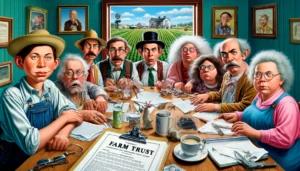
Texas Homeschooling A closeup vivid and detailed illustrative scene focusing on one aspect of the homeschooling environment in Texas. The image should zoom in on a ch3.webp.jpeg
The Lone Star Classroom: A Unique Educational Experience

In the heart of Texas, homeschooling transcends traditional boundaries, offering an education steeped in the state’s rich cultural tapestry. Dr. Emily Johnson, an educational psychologist, notes, “Integrating cultural elements into education enhances engagement and retention.” She points to Texas homeschoolers, who might study the Alamo’s history one day and the science of barbecue smoking the next, as prime examples of this approach’s effectiveness.
Eyewitness Mrs. Laura Hernandez, a seasoned Texas homeschooler, shares, “Our lessons are as vibrant as Texas itself. One day we’re exploring Texan history, and the next, we’re learning biology by examining local plant life.”
Math with a Country Twist

In Texas, math isn’t confined to the classroom. It’s on the ranch, calculating the feed for livestock or the area of a new barn. Dr. Hank McCoy, a math educator with a penchant for integrating real-world scenarios into teaching, notes, “When kids apply math to something tangible, like ranch operations, their understanding deepens.” Local rancher Sally Fields observes, “You haven’t seen math until you’ve seen a kid figure out the optimal angle for a fence to maximize grazing area.”
Picture this: a math class where the chalkboard is replaced by the expansive backdrop of a Texas ranch. Here, students aren’t just crunching numbers; they’re calculating feed ratios for cattle, determining the area of a new chicken coop, and plotting the most efficient route for tractor paths. It’s a place where algebra meets agriculture, geometry partners with gardening, and probability is pondered over the likelihood of rainfall affecting crop yields. In this unique classroom, every math problem is a real-life scenario, ensuring that students aren’t just learning formulas; they’re applying them to the world around them, merging textbook knowledge with the tangible tasks of farm life.
In Texas, word problems involve calculating the trajectory of a horseshoe toss and algebraic equations are solved only after a quick line dance break to stimulate brain function. Geometry class includes designing the most efficient layout for a barn dance, and trigonometry is about determining the exact angle at which to tip your cowboy hat to block the sun while poring over math textbooks. Let’s not forget the practical application of fractions while divvying up the pie at the county fair. .
Recess Rodeo-Style

Forget traditional gym class; in Texas, homeschoolers might be found barrel racing or practicing their lassoing technique. “It’s physical education with a practical edge,” says Jake Ryder, a physical education expert who advocates for diverse forms of physical activity. Neighbors like Bob Johnson often catch glimpses of these unconventional recesses and can’t help but marvel, “It’s like watching a training session for future rodeo stars.”
In the heart of Texas, where the spirit of the rodeo runs as deep as the roots of the mesquite trees, homeschool recess isn’t your typical playground break. Here, it’s Rodeo-Style! Imagine stepping out your back door to a world where barrel racing replaces tag, and lassoing is as common as jump rope. Kids swap out dodgeballs for horseshoes, perfecting their aim with the precision of seasoned cowboys and cowgirls. This isn’t just playtime; it’s a rite of passage. It’s where grit is learned, laughter is shared, and the line between education and adventure blurs under the wide Texan sky.
While Texas homeschoolers are indeed as diverse and spirited as the state itself, not all of them can lasso a steer by the age of ten or debate the merits of brisket versus pulled pork in a geography lesson. And while we’re at it, let’s be clear that not every science lesson involves identifying critters (though it sure sounds fun).
Literary Lessons from the Lone Star State
Even literature classes have a Texan flair, where local history and lore might share curriculum space with classic novels. “Integrating Texas history into literature not only makes learning more relatable but also instills state pride,” comments literature professor Amy Gomez. Homeschooling parent Janet reveals, “My kid’s presentation on ‘Lonesome Dove’ included a full cowboy getup and a crash course in cattle driving.”
In Texas, where “y’all” is a staple in everyone’s vocabulary, literary lessons in homeschooling aren’t your standard fare. Imagine dissecting the symbolism in “Lonesome Dove” or exploring the thematic depth of a Willie Nelson song. Here, “To Kill a Mockingbird” might just be a lesson in proper BBQ etiquette—never waste good chicken! Shakespeare’s tragedies? They’re just preludes to the real drama at the Friday night football games. And let’s not forget the required reading: the Texas Roadmap, because getting lost on your way to the rodeo is never an option in a Texan’s education.
Geography Through Culinary Exploration
In Texas, geography might involve charting a course through the state’s iconic barbecue joints or mapping the origins of Tex-Mex. “Food is a gateway to learning about culture and place,” explains cultural anthropologist Dr. Laura Chen. Food critic Mike Sanders has even seen students create edible maps, noting, “It’s one thing to learn about the Gulf Coast; it’s another to trace it with shrimp and grits.”
In the realm of homeschooling, where textbooks meet taste buds, geography isn’t just about maps and capitals—it’s about culinary exploration! Imagine learning the topography of Italy through layers of lasagna, or exploring the Amazon rainforest while munching on Brazilian nuts. In this kitchen-classroom hybrid, rivers are streams of chocolate syrup, and mountains are peaks of mashed potatoes. Who knew that understanding the Sahara could be as simple as sampling a plate of Moroccan couscous? So, buckle up your apron, grab your fork, and prepare to embark on a taste bud-tingling journey across the globe—no passport required, just a hearty appetite and a sprinkle of imagination!
Science in the Great Outdoors
Science lessons often extend beyond the textbook, taking advantage of Texas’s diverse ecosystems. Environmental scientist Dr. Neil Carson champions this hands-on approach: “Kids here might study biology by tracking native wildlife or learn physics by examining the mechanics of a windmill.” Farmer Joe Baxter frequently witnesses homeschoolers conducting field experiments, saying, “They’re not just reading about the environment; they’re out there living it.”
Arts Infused with Texan Spirit
Music and art education embrace the state’s cultural heritage, with students learning to strum a guitar or paint landscapes that echo the Texan spirit. “Art here isn’t just about technique; it’s about expressing what Texas means to each student,” states art therapist Dr. Emily Warren. At local art shows, the influence is clear, with themes ranging from the rustic charm of rural life to the vibrant scenes of Texan fiestas.
In the grand state of Texas, where art class means sketching the perfect cowboy boot and music lessons might just involve mastering the harmonica, homeschooling takes a creative twist that could rival any rodeo show. Imagine painting landscapes where the tumbleweeds are as detailed as the cattle, and choir practice includes yodeling with a drawl. Here, the state flower, the bluebonnet, isn’t just a subject for watercolors; it’s a study in botanical elegance, Texas-style. And let’s not forget drama class, where reenacting the Battle of the Alamo provides not only a history lesson but also a test of one’s theatrical prowess, complete with coonskin caps and an authentic Texan accent. In Texas, the arts aren’t just a subject; they’re an immersive experience where every brushstroke and note sings, “Remember the Alamo!”
The Texan Twist on Home Economics
Home economics in Texas might include lessons on making the perfect brisket or canning your own salsa, equipping students with skills that are both practical and deeply rooted in state traditions. “It’s about passing down culinary heritage,” notes Rick Dale, a local culinary teacher.
In the Texan twist on home economics, students don’t just bake cookies; they master the art of smoking brisket and learn the critical life skill of determining the perfect chili spice mix. Here, sewing buttons is swapped for stitching up cowboy hats, and budgeting lessons include calculating the cost of feeding a horse. It’s a place where “ironing” might just mean branding your cattle, not pressing your shirts. And let’s not forget the final exam: hosting a full-fledged barbecue cook-off where the secret ingredient is always a pinch of Texas pride.
The State’s History Comes Alive

Texas homeschoolers don’t just read about history; they live it, often reenacting historical events or visiting significant sites to get a firsthand understanding of their state’s past. “It’s about making history tangible,” says historian Billy Knox.
Unique Electives: From Horseback Riding to Oil Rigging
Elective subjects offer a deep dive into Texas culture, with options ranging from horseback riding to understanding the oil industry, ensuring students have a well-rounded education that’s also uniquely Texan.
Incorporating these distinct elements, Texan homeschooling provides an education that’s not only academically rigorous but also rich in the state’s traditions and values, preparing students for a future where they’re well-versed in both book smarts and Texan heritage.
Disclaimer: Y’all Hold Your Horses!
Before you saddle up and ride off into the sunset with visions of Texan homeschoolers roping cattle during math class or two-stepping their way through history lessons, let’s tip our hats to the fine line between reality and good ol’ Texan tall tales. This article might have stretched the imagination wider than a Texan prairie, blending a bit of humor with the educational quirks of the Lone Star State.
While Texas homeschoolers are indeed as diverse and spirited as the state itself, not all of them can lasso a steer by the age of ten or debate the merits of brisket versus pulled pork in a geography lesson. And while we’re at it, let’s be clear that not every science lesson involves identifying critters (though it sure sounds fun).
So, whether you’re a Texan homeschooler, a curious onlooker, or just someone who enjoys a good yarn, remember: this piece is served with a side of jest and a dollop of exaggeration, all in good fun. After all, in Texas, we go big or go home—even with our disclaimers!
Originally posted 2008-08-07 06:32:12.
Originally Published at FarmerCowboy.com
2024-07-26 15:25:11
Karl Hoffman is a distinguished agriculturalist with over four decades of experience in sustainable farming practices. He holds a Ph.D. in Agronomy from Cornell University and has made significant contributions as a professor at Iowa State University. Hoffman’s groundbreaking research on integrated pest management and soil health has revolutionized modern agriculture. As a respected farm journalist, his column “Field Notes with Karl Hoffman” and his blog “The Modern Farmer” provide insightful, practical advice to a global audience. Hoffman’s work with the USDA and the United Nations FAO has enhanced food security worldwide. His awards include the USDA’s Distinguished Service Award and the World Food Prize, reflecting his profound impact on agriculture and sustainability.





Knowledge is not just for the mind; it transforms the soul. ??
Why did the cow become a detective? To solve the moo-steries!
Farm Radio’s greenhouse climate control tips have optimized my plant growth.
The only cure for internet negativity is a good ol’ tune from Farm.FM. Trust me—it works!